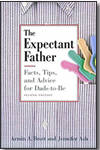Changing Friendships:
Q: Since becoming a father my wife and I haven't been
able to spend as much time with our friends as we used to. Some of them
seem to understand but others don't. Is there anything we can do to
keep our friendships alive?
A: Considering how small and helpless babies are,
it's really amazing that they can have such a powerful impact on the
lives of the adults around them. Simply by being born, your baby has
already transformed you and your partner from a "couple" into
"parents" and your parents and in-laws into, gasp, "grandparents."
Even more amazing is the impact that babies have on the pre-existing
relationships between the adults in their lives. Babies can bring a
couple together, for example, or they can create a lot of stress (or
at least magnify it). They can reunite families and mend old wounds
or they can open new ones. They can even change the nature of your friendships.
Here are a few ways this might play out:
- You and your partner aren't going to be nearly as available for
last-minute movies or double-dates and you might not be quite as happy
to have friends drop by unannounced. And if, by some miracle, you
do end up with a little down time, you're probably going to want to
spend it sleeping or hanging out with your partner. As a result, some
of your friends might feel a little neglected.
- Your new, less-spontaneous lifestyle may affect your relationships
with your single male friends most of all. Having a new baby probably
means fewer all-night poker games. Your buddies may stop calling you
because they think you're too busy or not interested in hanging out
with them anymore. Or you might stop calling them because seeing their
relatively care-free and obligation-free lives may make you jealous.
- You and your partner might find yourselves more interested (or at
least more interested than you were before) in spending time with
people--especially couples--your own age. You might find that you
don't have quite as much in common anymore with your single or childless
friends and they might start feeling the same way too.
- Some of your friends who have children who are older than yours
might start getting on your nerves by insisting on telling you every
single thing they think you're doing wrong as a parent.
- Some of your friends may be disdainful or unsupportive of your taking
an active, involved role in your baby's life, falling back on the
old stereotype that men should leave the parenting stuff up to their
wives or that putting your family first could have a negative impact
on your career.
As your kids get older their impact on your friendships will continue
to grow.
- For the first little while, your baby will play with whomever you
introduce her to; her first friends are most likely going to be your
friends' kids. But as she gets older and starts showing interest in
other children and making friends of her own, this will change: you'll
start socializing with the parents of her friends. This will probably
widen your circle of friends and may even make some of your adult
relationships last longer than they would have because the kids like
playing together.
- Your relationships with new and old friends may be subtly--or not
so subtly--affected by competition. Let's face it: we all want our
children to be the biggest, smartest, fastest, cutest, and funniest
and it's only natural (especially for guys) to get a little competitive.
Here are some things you can do to smooth out the bumps in your changing
friendships:
- Get a calendar and learn how to use it. Work out a schedule with
your partner so that the two of you can get some time to yourselves--as
a couple and, if you can, as an individual--even if it's only for
an hour or two at a stretch.
- Watch what you say. No matter how much people without kids pretend,
there's a limit to how much they really want to hear about all the
exciting things (to you anyway) that your baby can do or how many
times she filled her diaper today.
- Learn to accept change. It may seem harsh, but the fact is that
you may lose some friends (and they'll lose you) now that you're a
parent. But you'll gain plenty of new ones in the process.
- Don't listen to everything everyone else tells you. Whatever they
know about taking care of children they learned on the job. And that's
how you're going to learn too.
- Don't give in to pressure. Sure, it's socially acceptable to leave
all the childcare to your partner but it's a lot more rewarding to
jump in and do it yourself. Eventually your friends (if they're really
friends) will come around and some of them might even end up asking
you for some pointers.
- Watch the competition. If your friend's baby crawls, walks, talks,
sings, says "da-da," or gets a modeling contract or an early-admissions
preschool acceptance letter before your baby does, you may find yourself
more than a little envious. But you know that your baby is the best
one in the world. Go ahead and let them delude themselves into thinking
that theirs is. Why burst their bubble?
|


